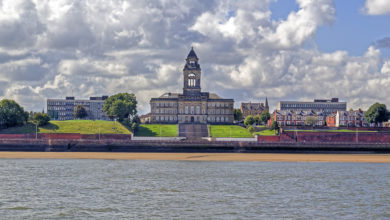Property Investment
Could the UK be Heading for a Seven-Year Property Crash?

It could take the nation’s property market seven years to recover should a recession hit new research has revealed.
A new study that has analysed the house price data across the UK market in the lead-up to, and the duration of, the last property market crash in 2008 suggests that if a recession hits causing property prices to fall, the UK property market’s recovery could take seven years.
The data showed that the UK’s property market reached its peak in September 2007, eight months before the crisis began when the average price of a home was £190,032.
However average house prices had already fallen £7K to £183,148 before the house price crash officially began in April 2008 and the country didn’t exit recession until June 2009. By this time, property values had fallen by 12.9 per cent to an average of £159,561.
It took over until April 2014, five years (58 months) until house prices recovered to pre-recession levels.
However, from its peak in 2007 mentioned above, the total period of falling prices spanned 83 months. It was almost seven years until UK property prices turned full circle and returned to their pre-financial crisis high.
Chris Hodgkinson, Managing Director of House Buyer Bureau, which conducted the research, commented: “We have just enjoyed an extremely prolonged period of record low interest rates with many buyers borrowing beyond their means to climb the ladder. With mortgage rates now on the up, another generation of homeowners are now struggling with the inflated cost of their monthly payments, while many more buyers are finding they simply don’t have the purchasing power they may have had a few months back.
While we’re not seeing the same volatile conditions of 2008, this pressure on our household finances is sure to dampen the high rates of house price growth enjoyed since the start of the pandemic.”
However, Hodgkinson also predicted prices would recover, if a little slowly, saying: “It may be some years before we return to the heady house price highs spurred by the pandemic property market boom. The property market is cyclical in nature and we’ve seen time and time again how resilient it can be when it comes to bouncing back following a crash.”
This opinion is backed up by historical house price data that shows that despite a series of peaks and troughs, UK house prices have been following an upward trend for the past five decades.
Whether the UK falls into a recession or not, it seems at first UK property investors will have to pay the price for our current period of high inflation with the governor of the Bank of England Andrew Baily strongly suggesting this week that interest rates will rise higher than he previously predicted. Speaking at the G30 37th Annual International Banking Seminar in Washington, D.C Bailey said: “Recently, the UK government has made a number of fiscal announcements, and has set 31 October as the date for a further fiscal statement. The monetary policy committee (MPC) will respond to all this news at its next meeting in just under three weeks from now. This is the correct sequence in my view. We will know the full scope of fiscal policy by then. But I will repeat what I have said already. We will not hesitate to raise interest rates to meet the inflation target, and my best guess today is that inflationary pressures will require a stronger response than we perhaps thought in August.”
Bailey also confirmed he is already in talks with the UK’s new Chancellor of the Exchequer Jeremy Hunt, stating that the two had a “meeting of minds about the importance of fiscal sustainability” and of taking measures to achieve this following the sudden departure of Kwasi Kwarteng this week as the PM attempted to distance herself from the disastrous mini-budget.











